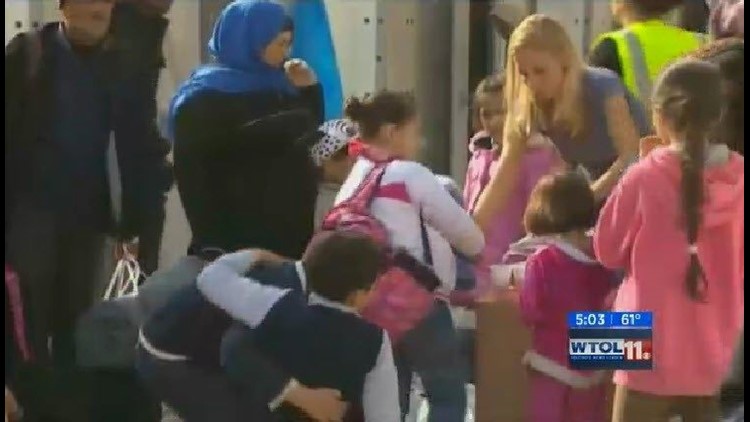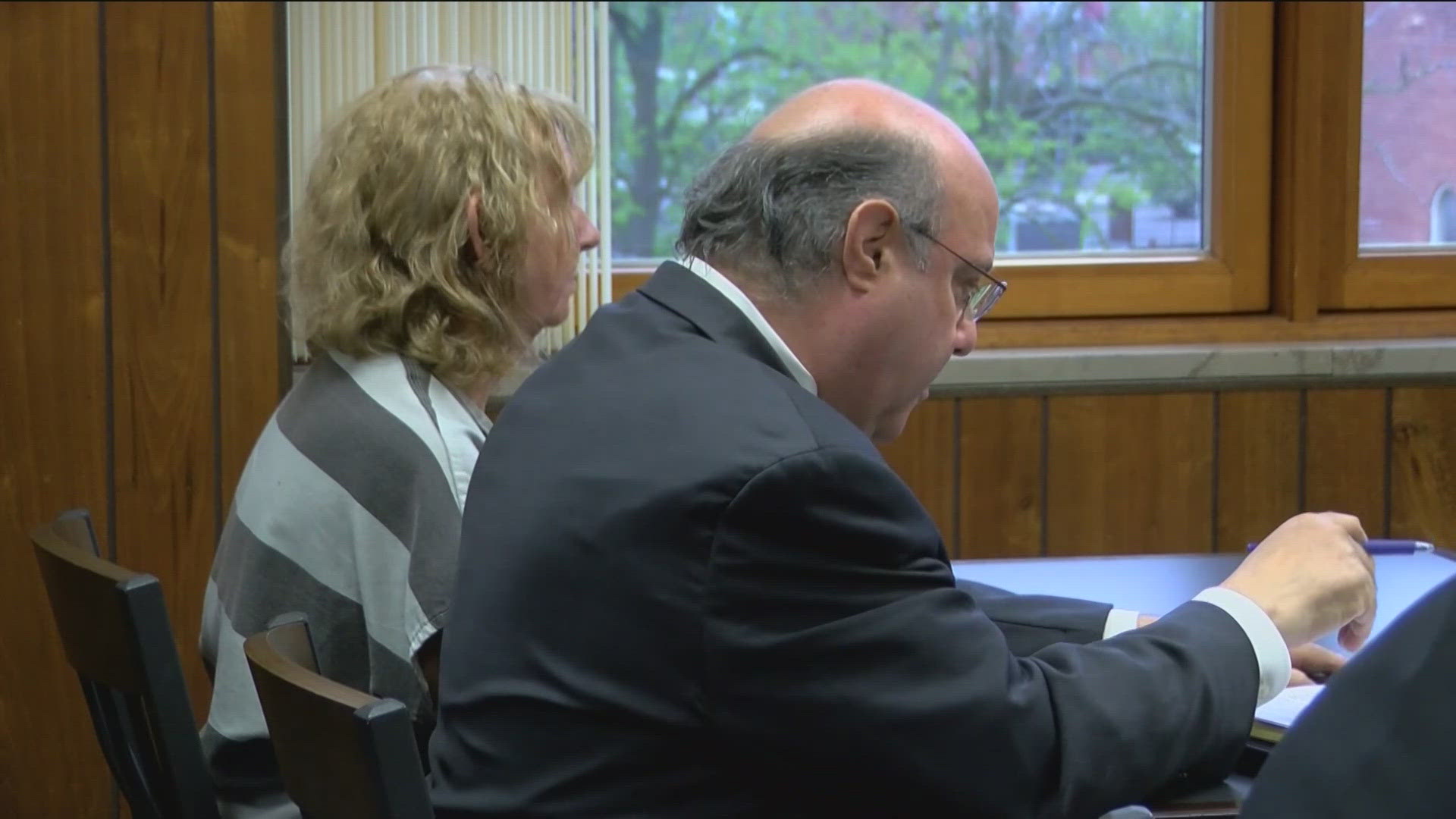(WTOL) - The security vetting process for those trying to enter the United States is at the forefront of the Syrian refugee debate.
Joel Voss, Assistant Professor of Political Science at the University of Toledo, says it's a rigorous procedure that begins in one of the Syrian refugee camps in Lebanon, Jordan, or another neighboring country, and is more difficult than entering Europe.
"The first process is that they have to leave their country, in this case Syria. That's what makes them a refugee, they feel threatened or oppressed so they have to leave. Not all leave, by the way, those that stay are called internally displaced persons, so they're basically refugees inside of Syria," he said. "It's a prolonged process for Syrian refugees, for example, to come into the U.S. and the reason is, for one, proximity. So Syria, Jordan, Egypt, Lebanon, etc., is not at all close to the U.S., so it's not like they can actually get into a boat or a ship and come over, which is what they're trying to do in Europe."
After living in the camps for an extended period of time, individuals can apply for asylum through the UNHCR, the United Nations High Commission for Refugees. The UNHCR then decides who merits refugee status.
"Once they're refugees, once they cross the border, they're set up into UN camps in Lebanon, Egypt, Jordan. Once they're there, UN starts trying to take care of them, with their health, education, mental health, so on. At this point, they're considered refugees and they can apply to have asylum somewhere else, for example the U.S.," said Voss. "It's extremely difficult to come to the U.S. as a Syrian refugee. The U.S. picks (the refugees) through the UN, so what they're really concerned with is those who are the most vulnerable. So women, a lot of widows and orphans. So we look at those individuals first, also the disabled."
That refugee status is based on several qualifications, including fear of being persecuted.
"Once they put in for their application, it's a long vetting process; it's about two to three years. And what happens is their health is checked, their credentials are checked, are they who they say they are, did they live where they said they lived. The same sort of process in a way if you would want to have a security clearance inside the U.S.," said Voss. "It's an in depth process of who you are and what your character is. Because what the U.S. wants to do is make sure we're getting actual refugees who have serious problems, and that we're not getting individuals who want to come only for economic reasons, those are migr ants. Or people who have malignant intentions, like terrorists."
The refugees also then begin the interview process.
"Interviews occur in the refugee camps, and interviews also occur across multiple institutions. All of our security apparatus interview these individuals. And if there's a red check mark anywhere, then their application is tossed," said Voss.
If all goes through, the refugees are referred by the UNHCR for resettlement in a third country, like the U.S., where they will receive legal residential status and eventually be able to apply for citizenship. A federally-funded agency then gathers their information and prepares even more intensive screening.
With national security an issue in the forefront of our nation, Professor Voss says the current vetting process could become more intense.
"I imagine that the vetting process will increase, and I imagine that the time it takes to have refugees come over from Syria will increase as well," he said. "I don't think we should speed things up necessarily, I think we should be secure, but I think that we shouldn't lose our humanity in this process. One way to think about it is, what if in the U.S. we had a couple hundred thousand people at our Canadian or our Mexican borders trying to get into the country and trying to survive. It would probably overwhelm us, but I'm not sure turning our backs on them would be the right thing to do. We have to think of it in terms of what would we like to happen to ourselves if unfortunately that kind of violence ever happened to us."
Voss also notes that refugees are fleeing massive violence, and nearly all are not interested in starting it.
"The key thing to remember about refugees is -- they're fleeing massive violence. They don't want to start more violence. I've said it before, but just because one person was a terrorist, it doesn't mean that all refugees are terrorists. In fact, nearly all refugees aren't terrorists. They abhor violence," he said. "So the U.S. has to think about this too and so does the rest of the Western world. What does it mean to have American values? What does it mean to be a Western liberal democracy? What does it mean to believe in human rights? Does it mean opening our borders and helping those that are the meek, the weak and the poor? Or does it mean closing our backs and borders to those that are most in need? It's a moral issue, but it's also a security issue."



